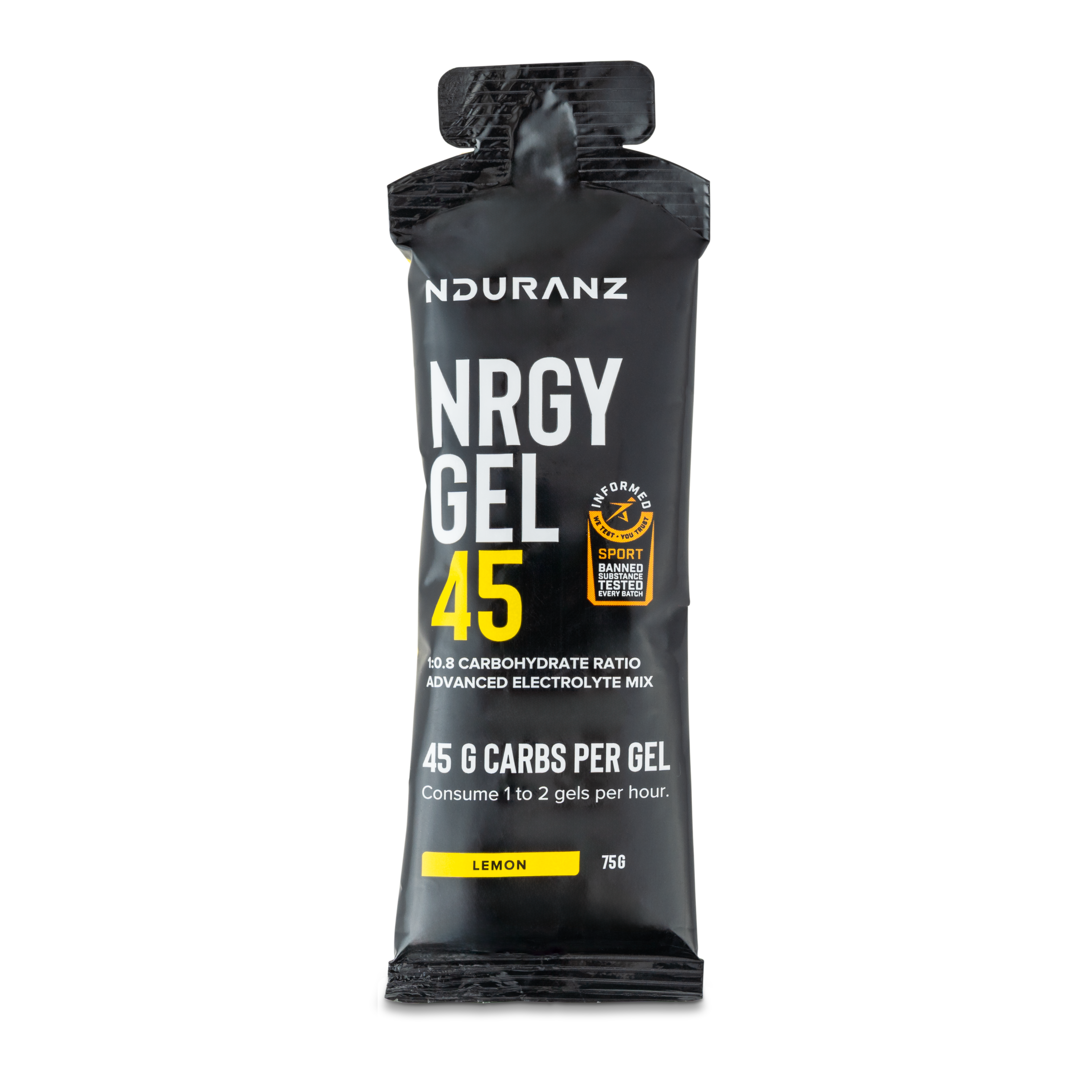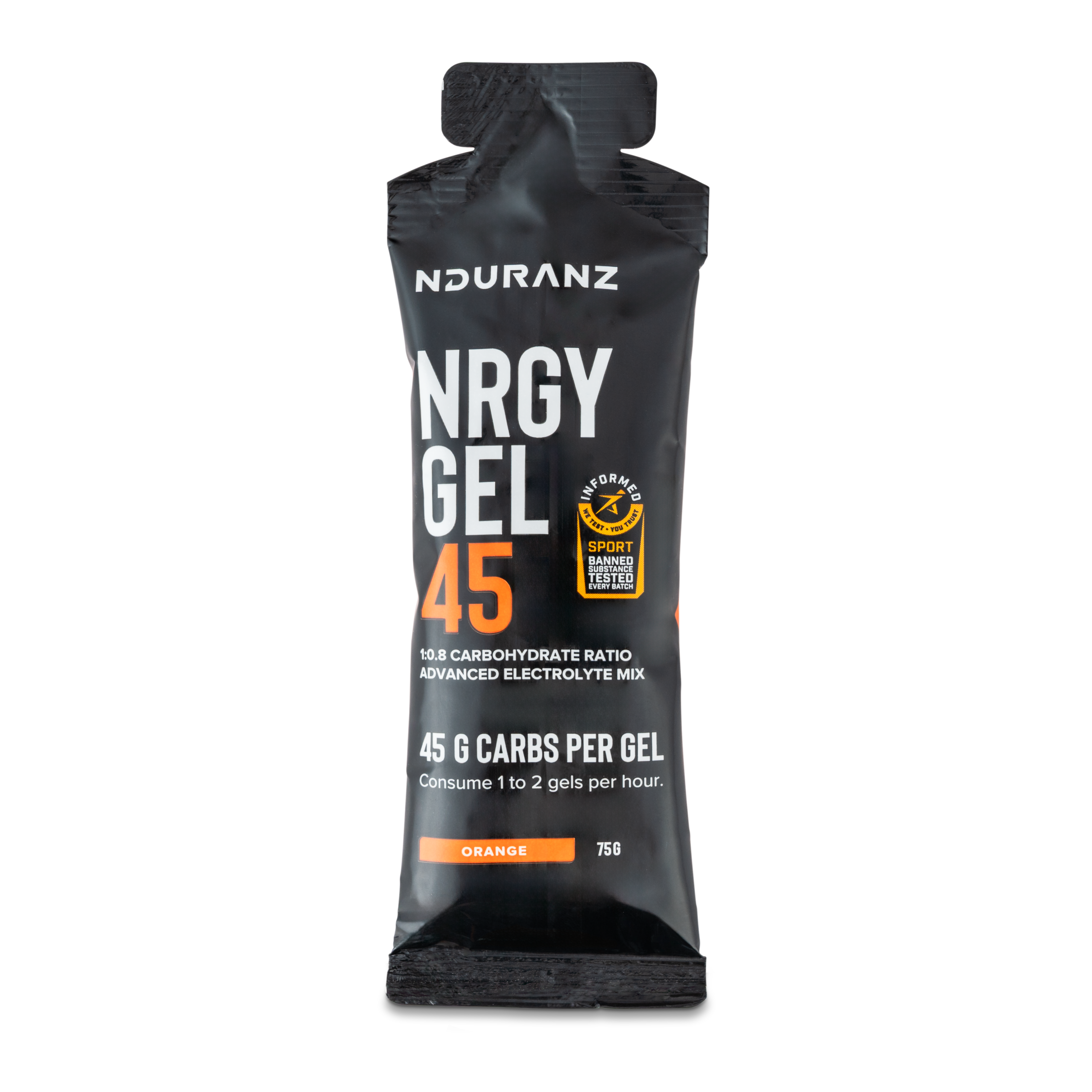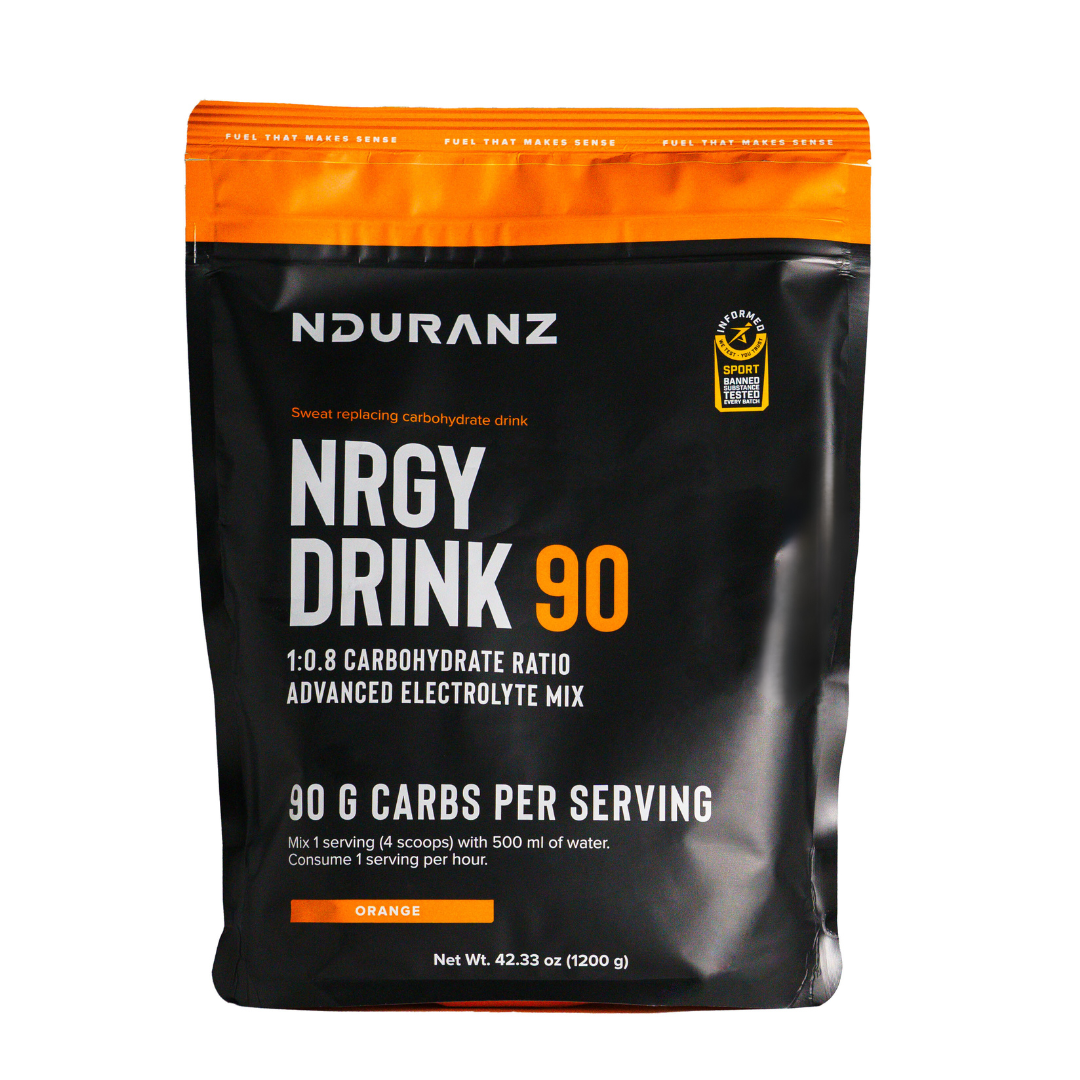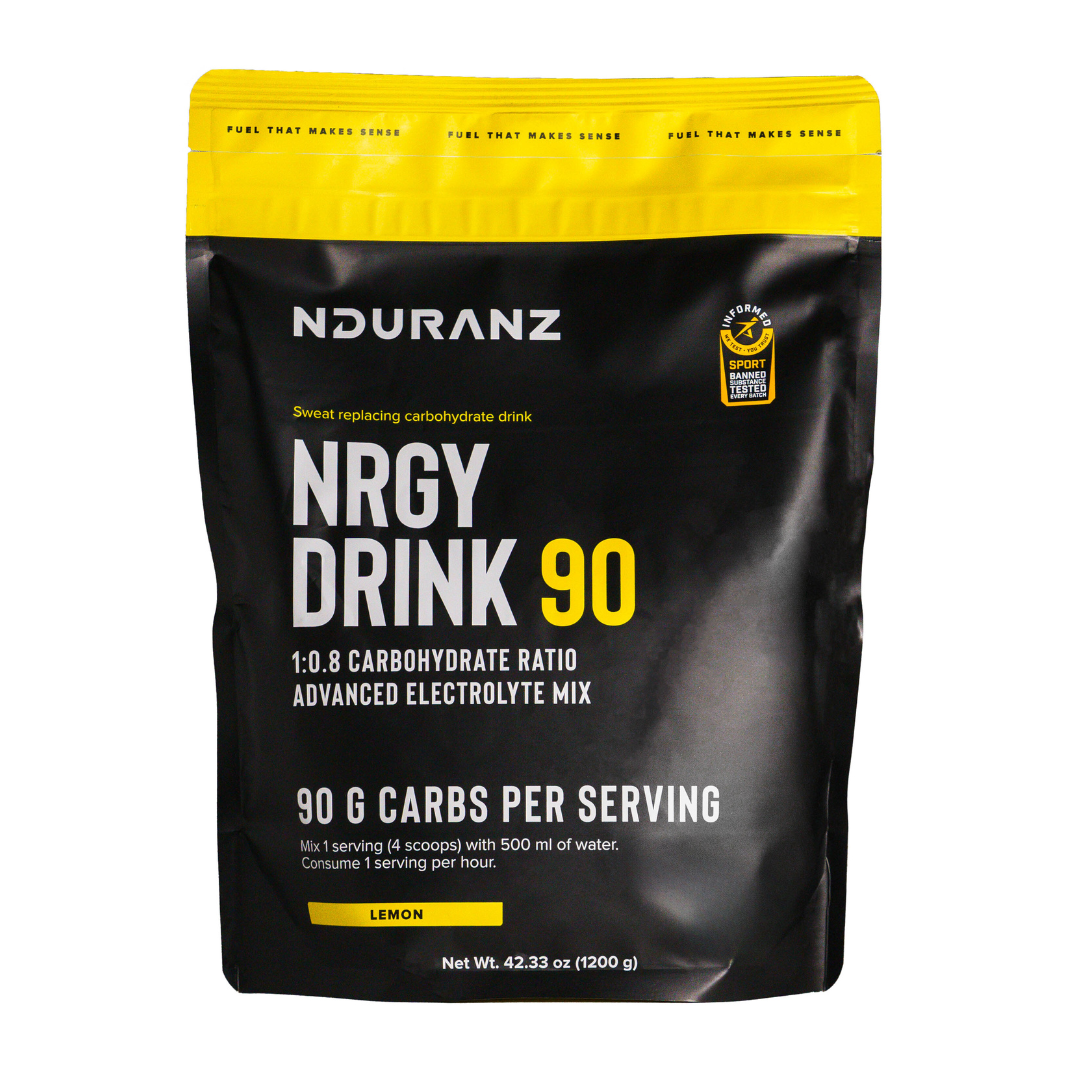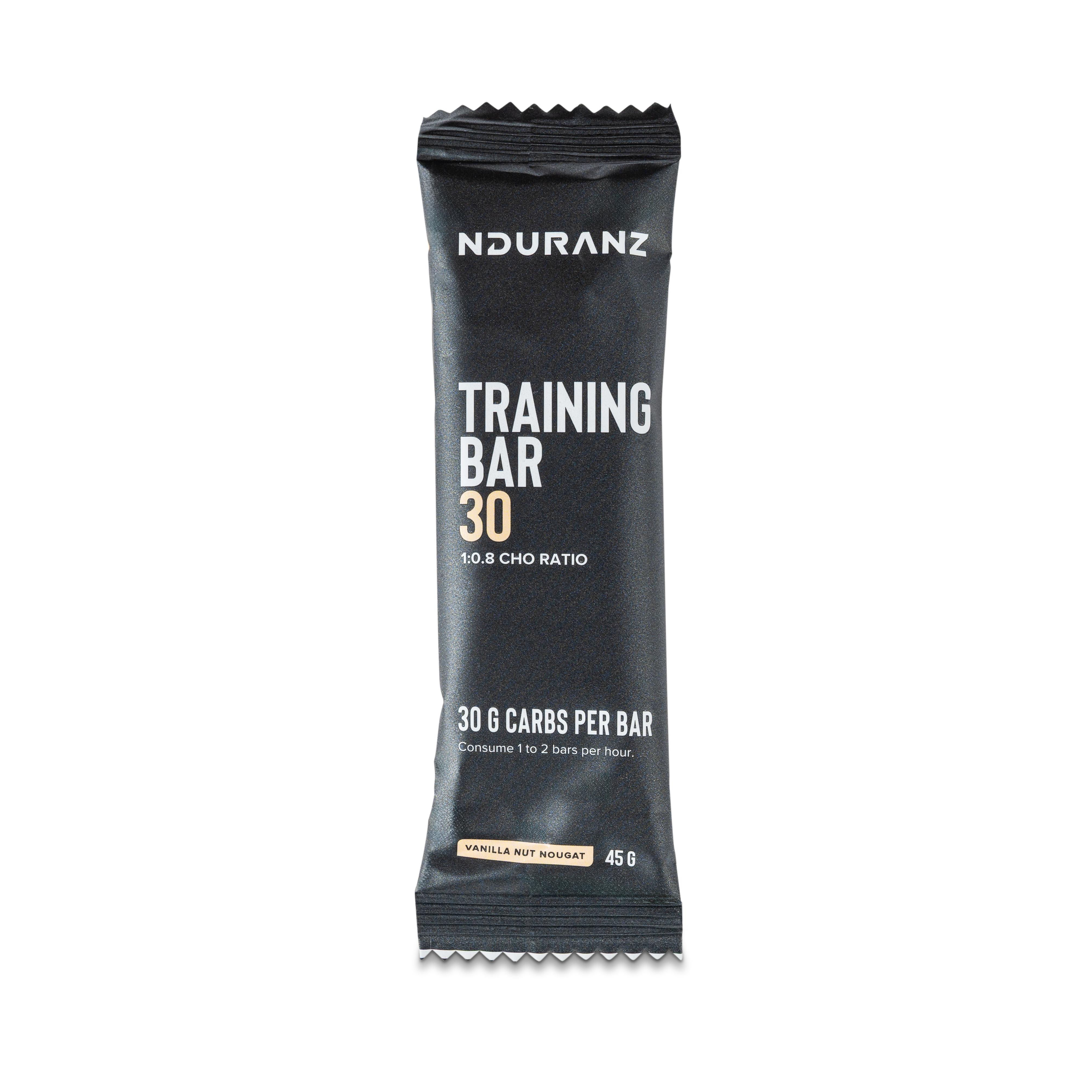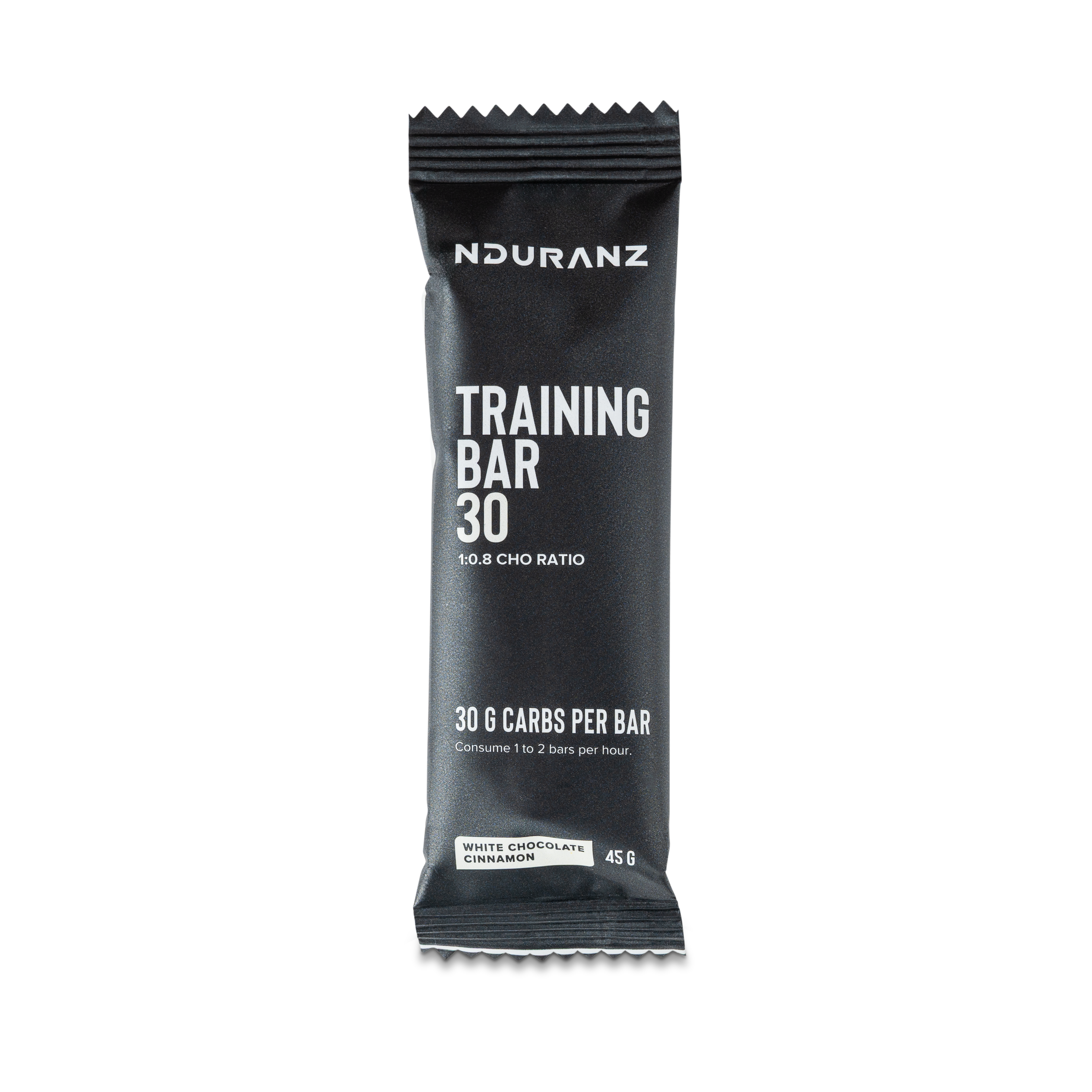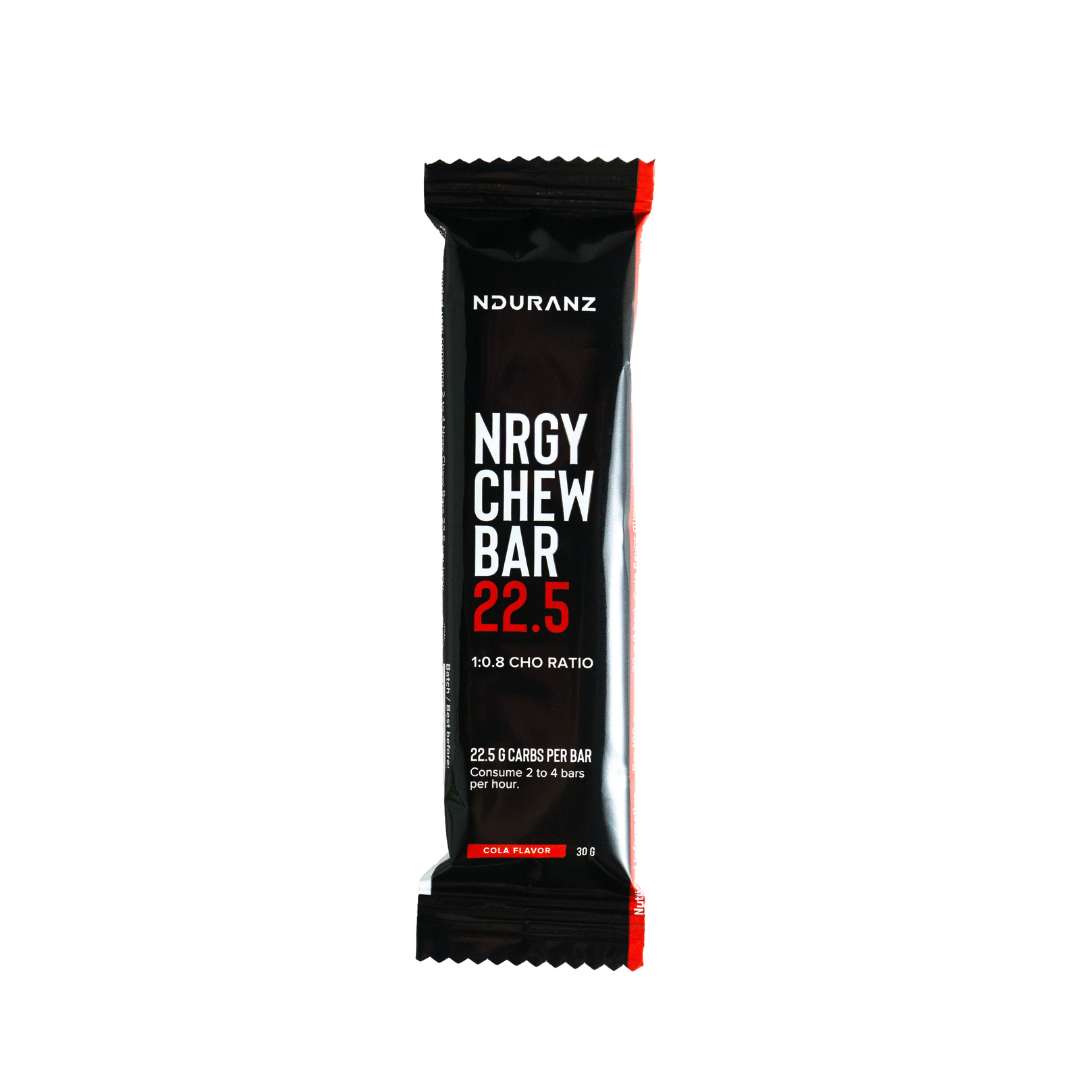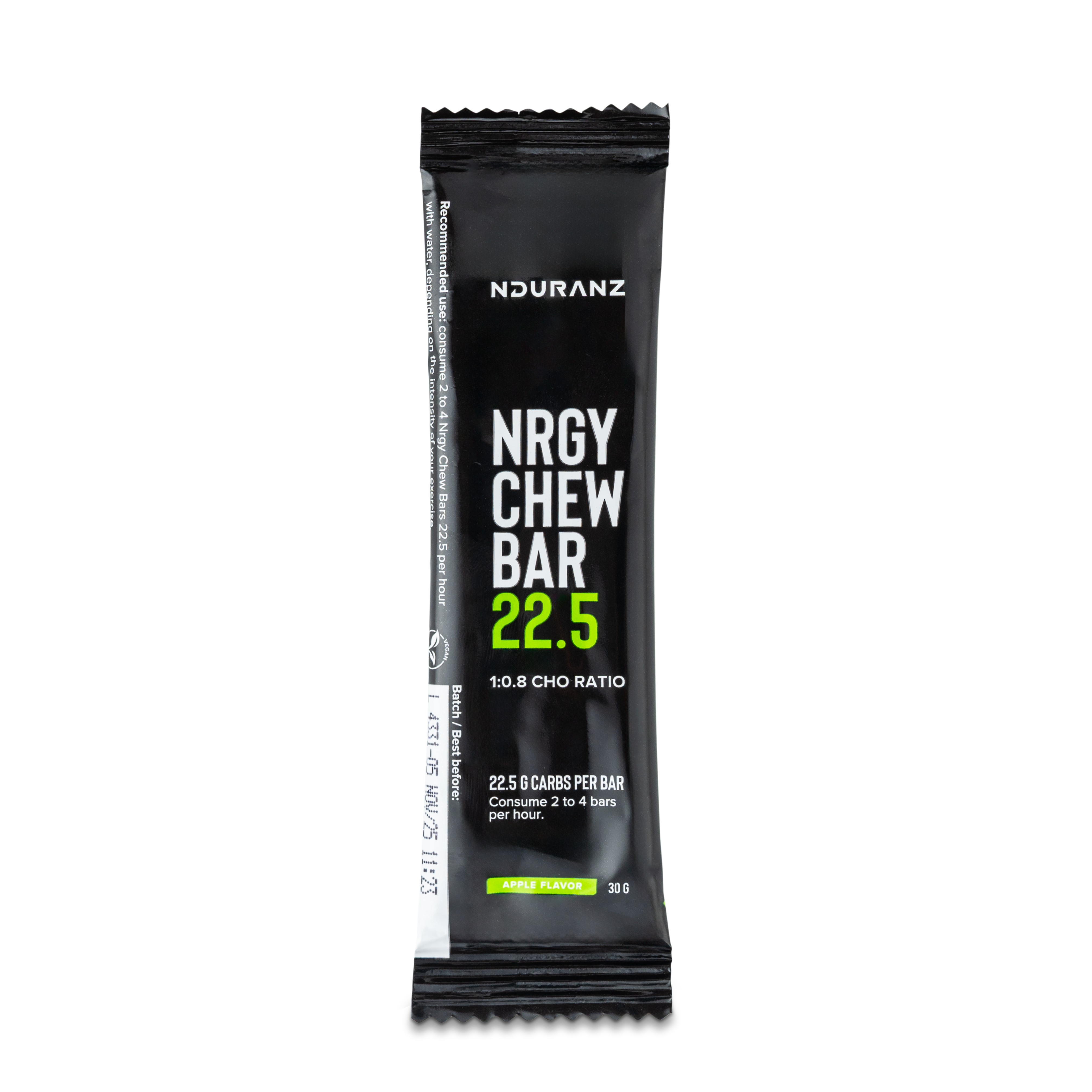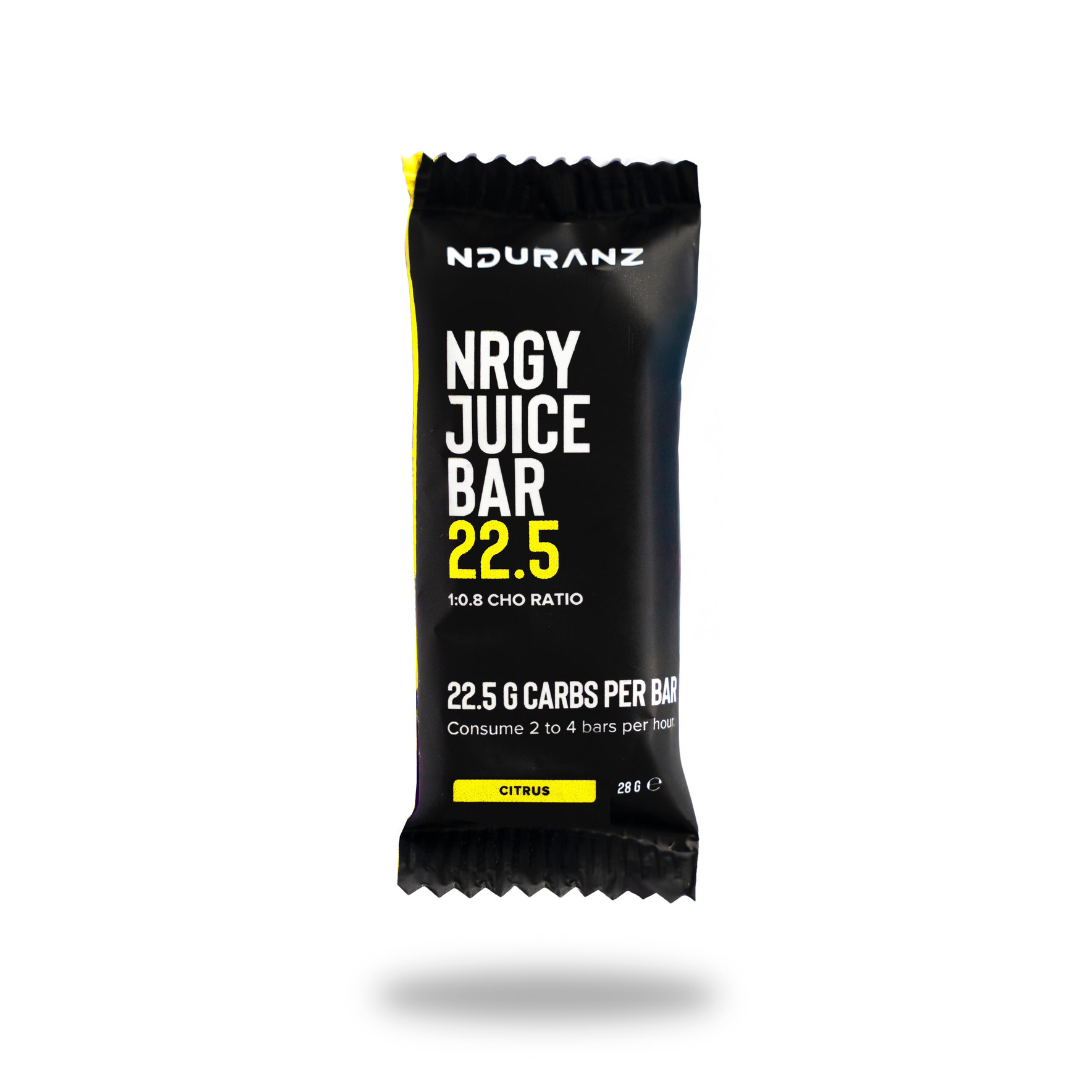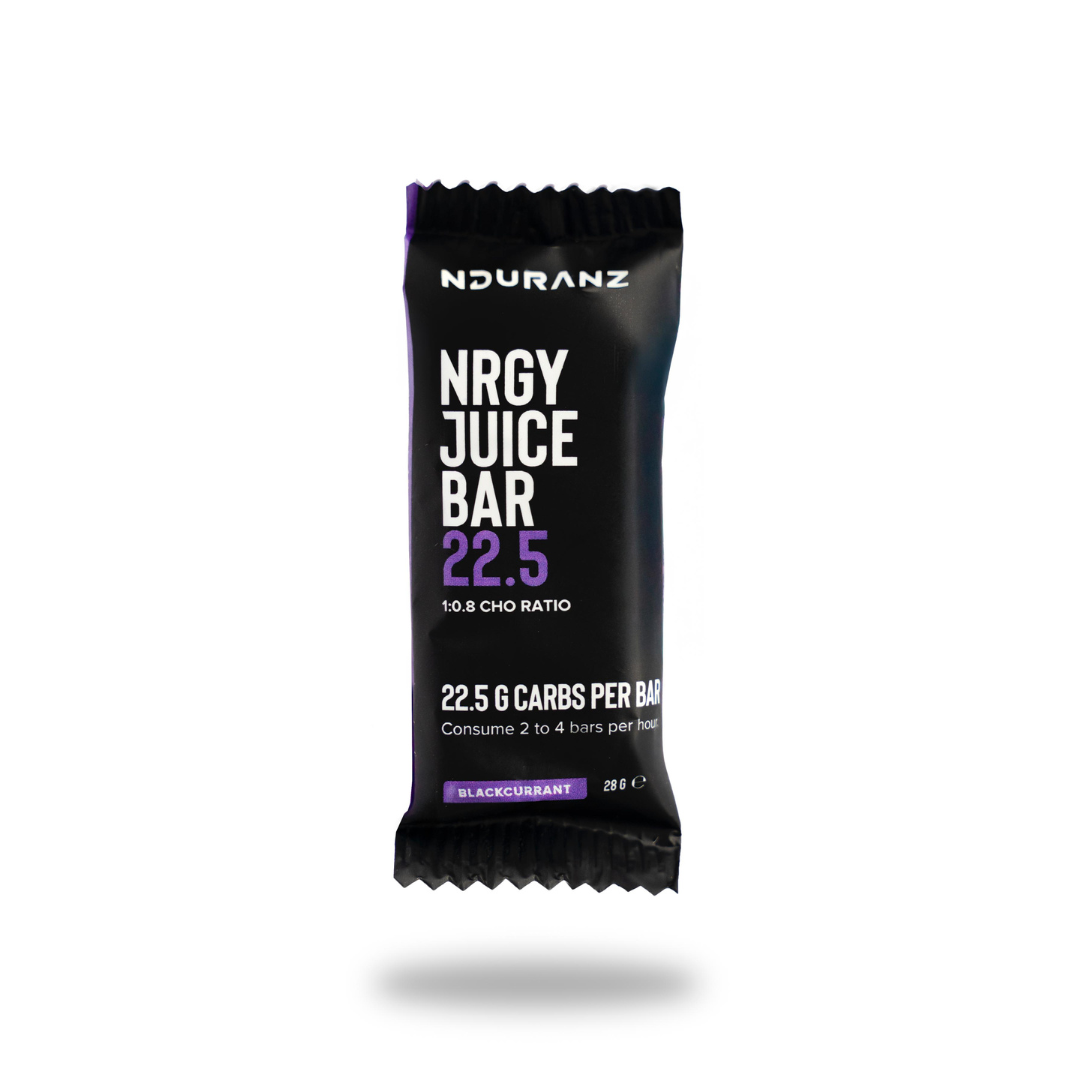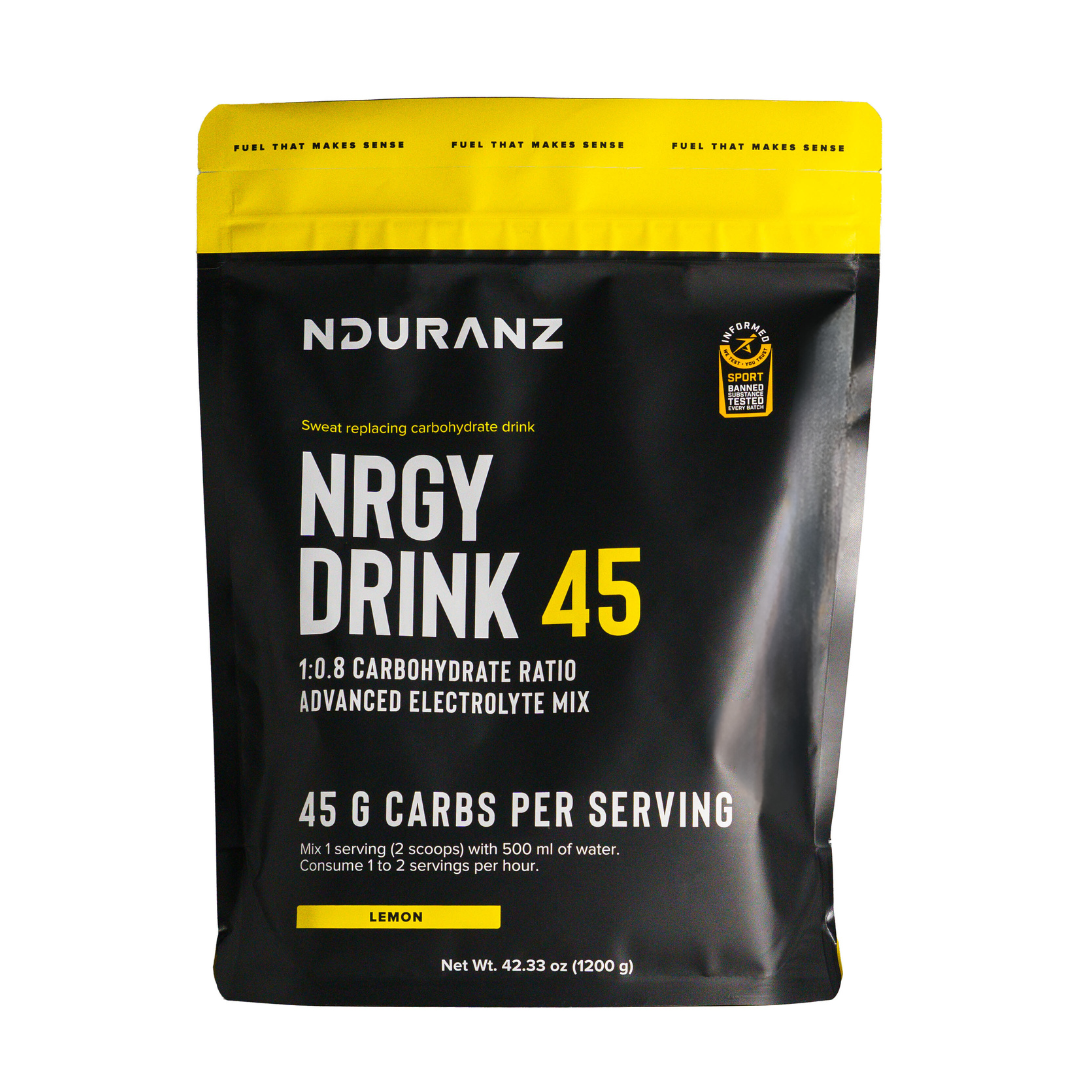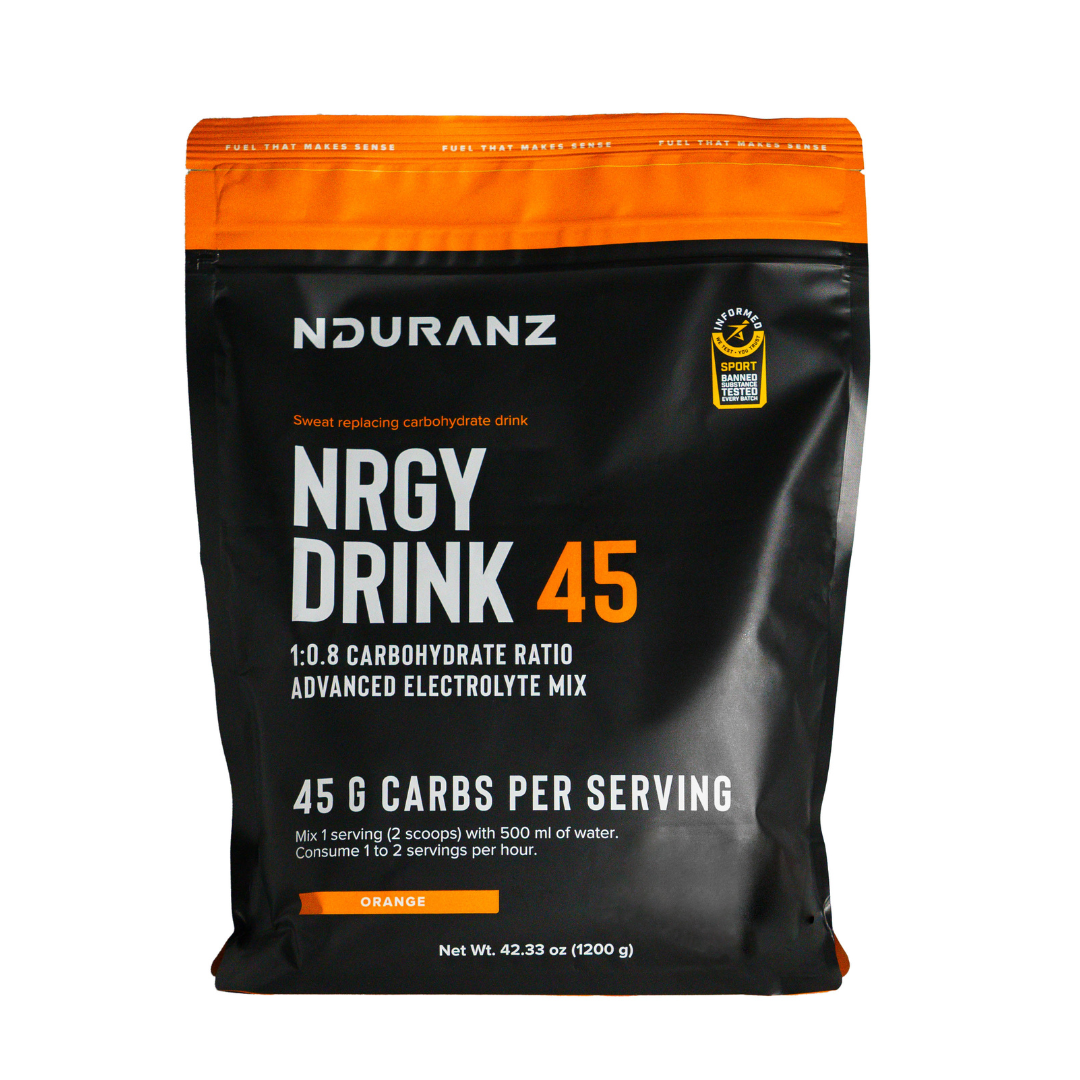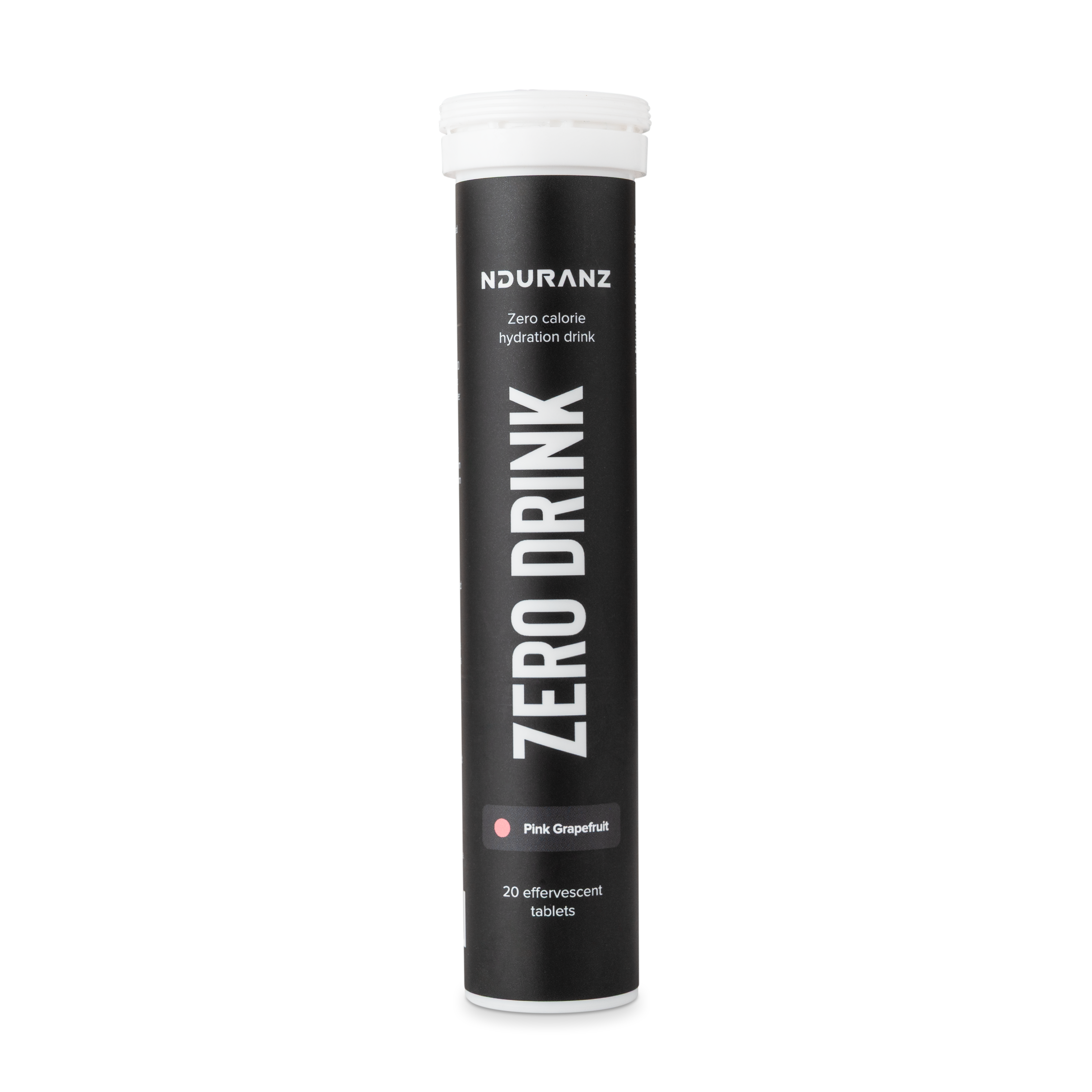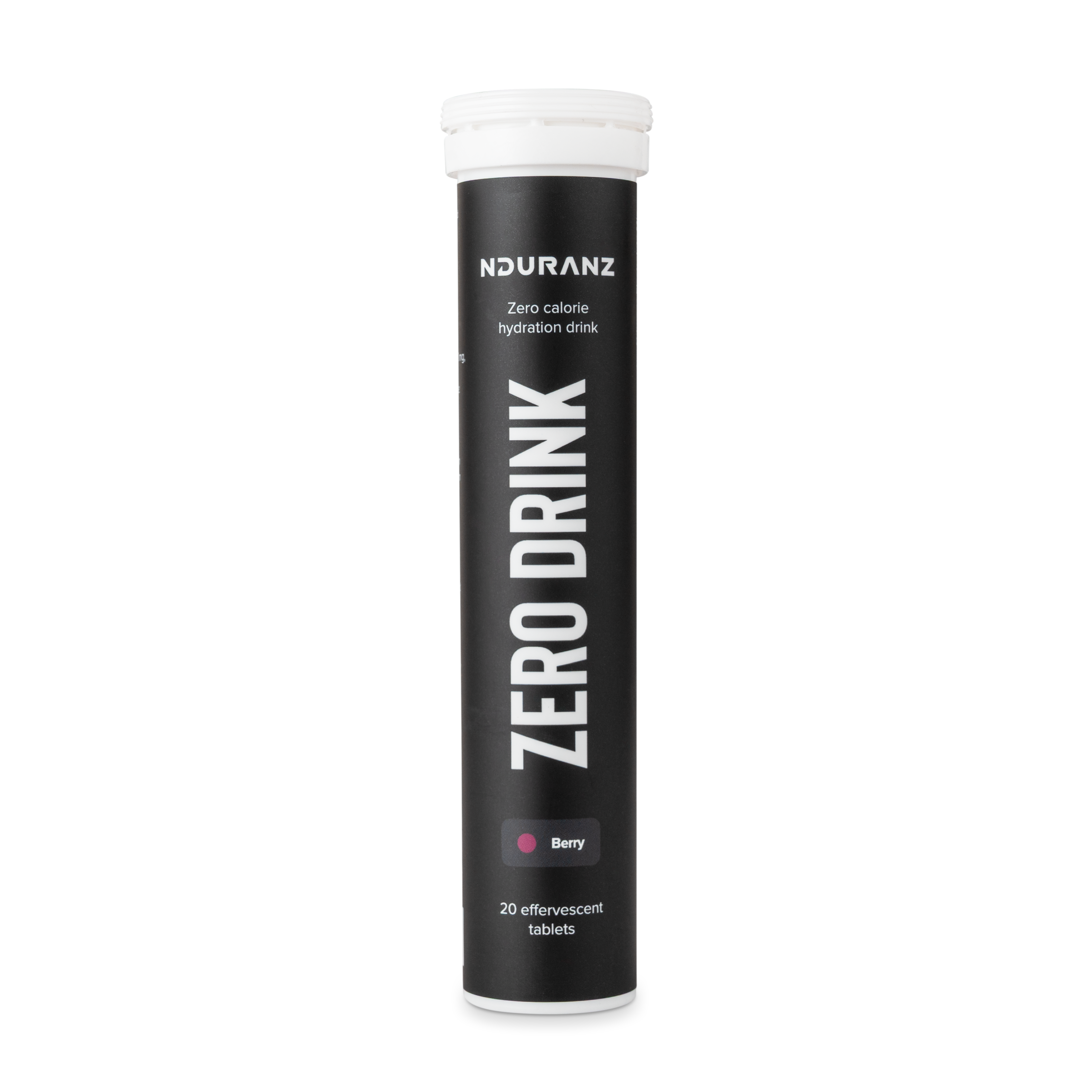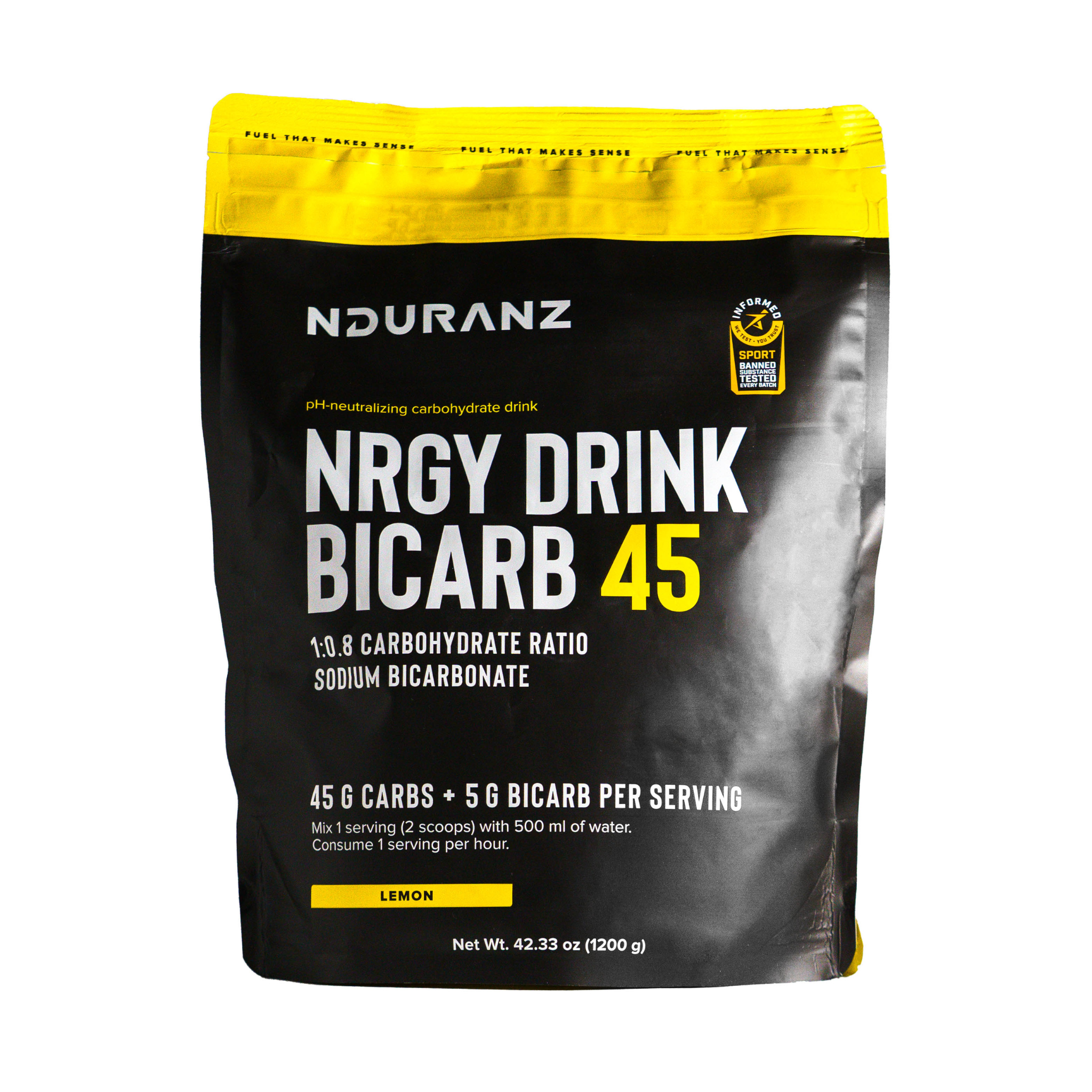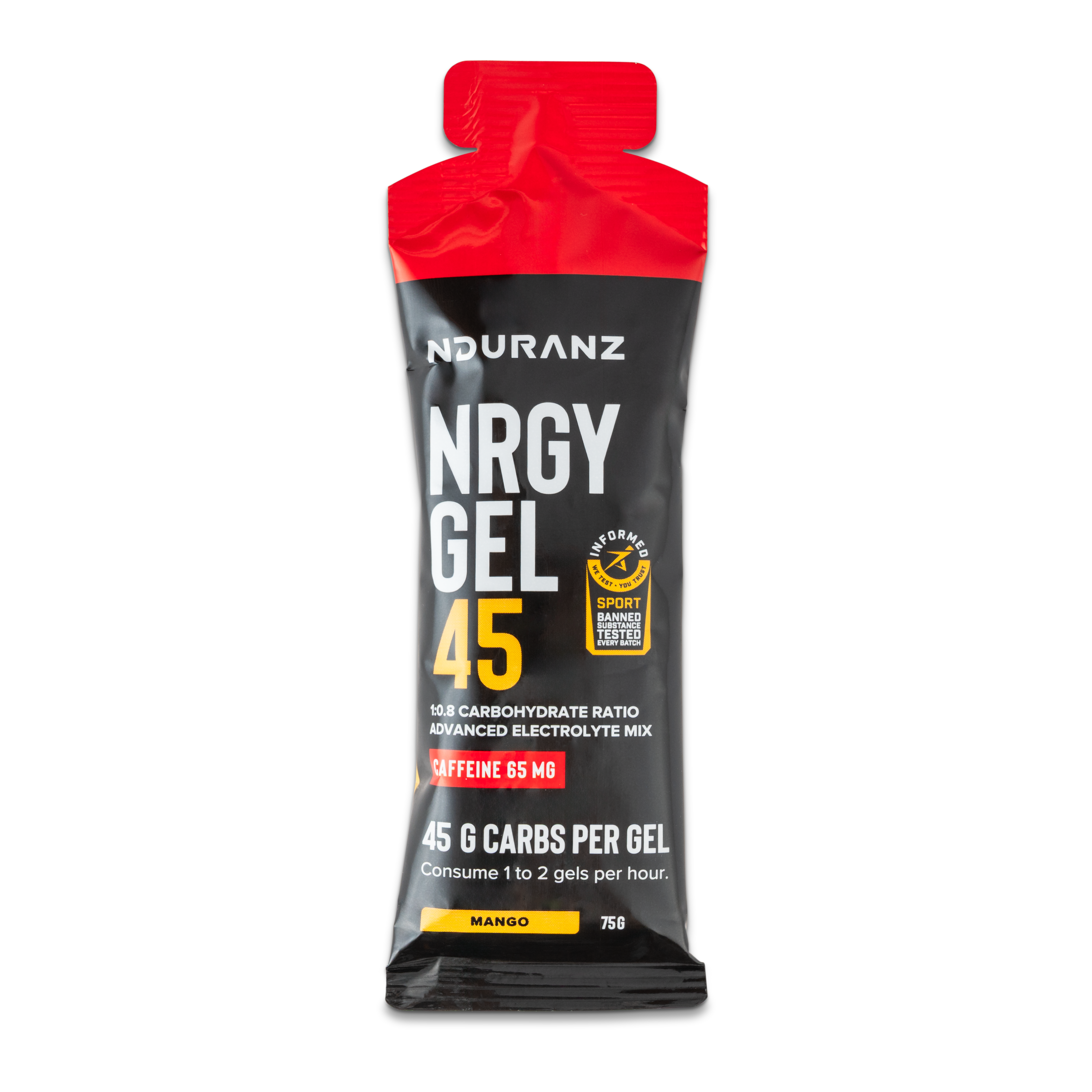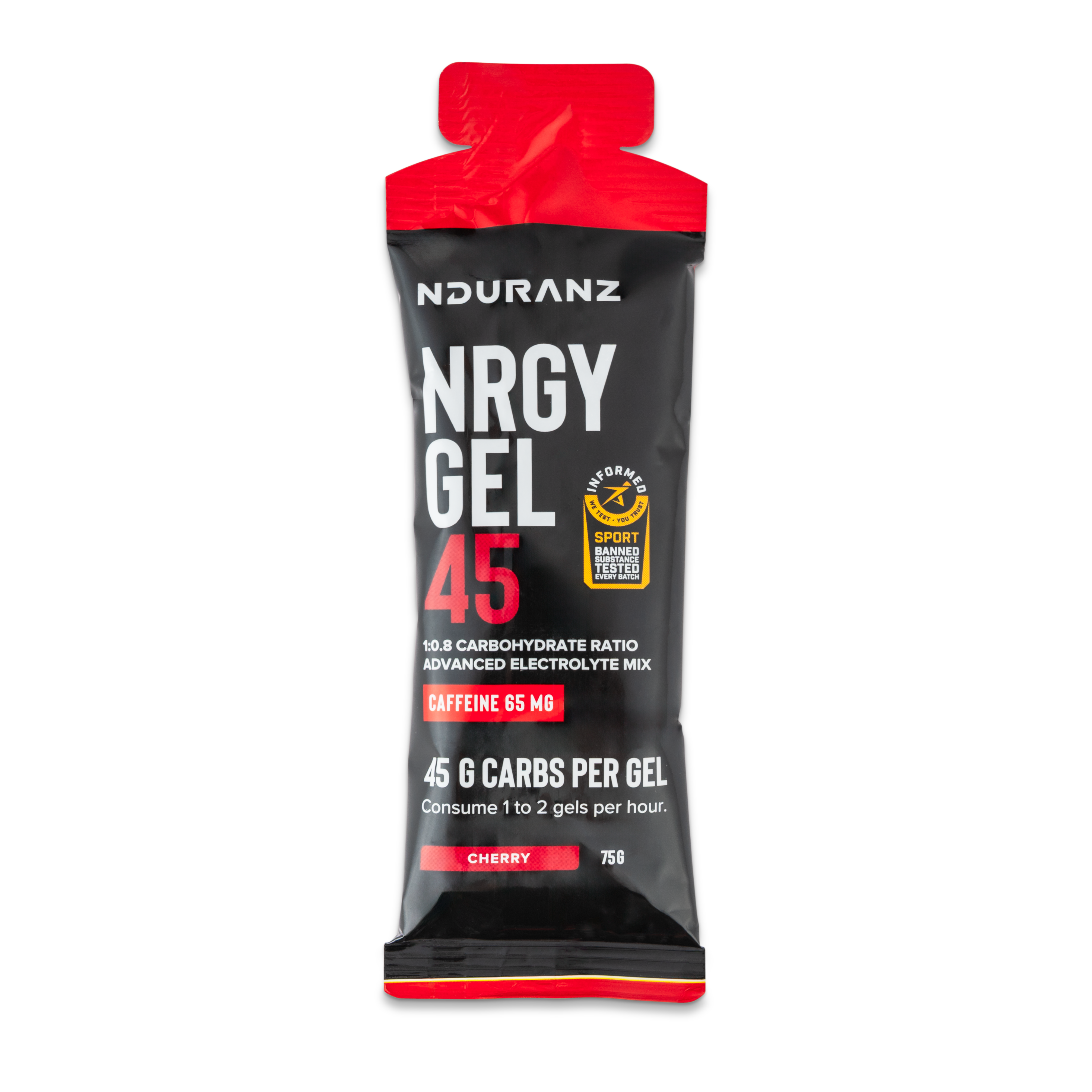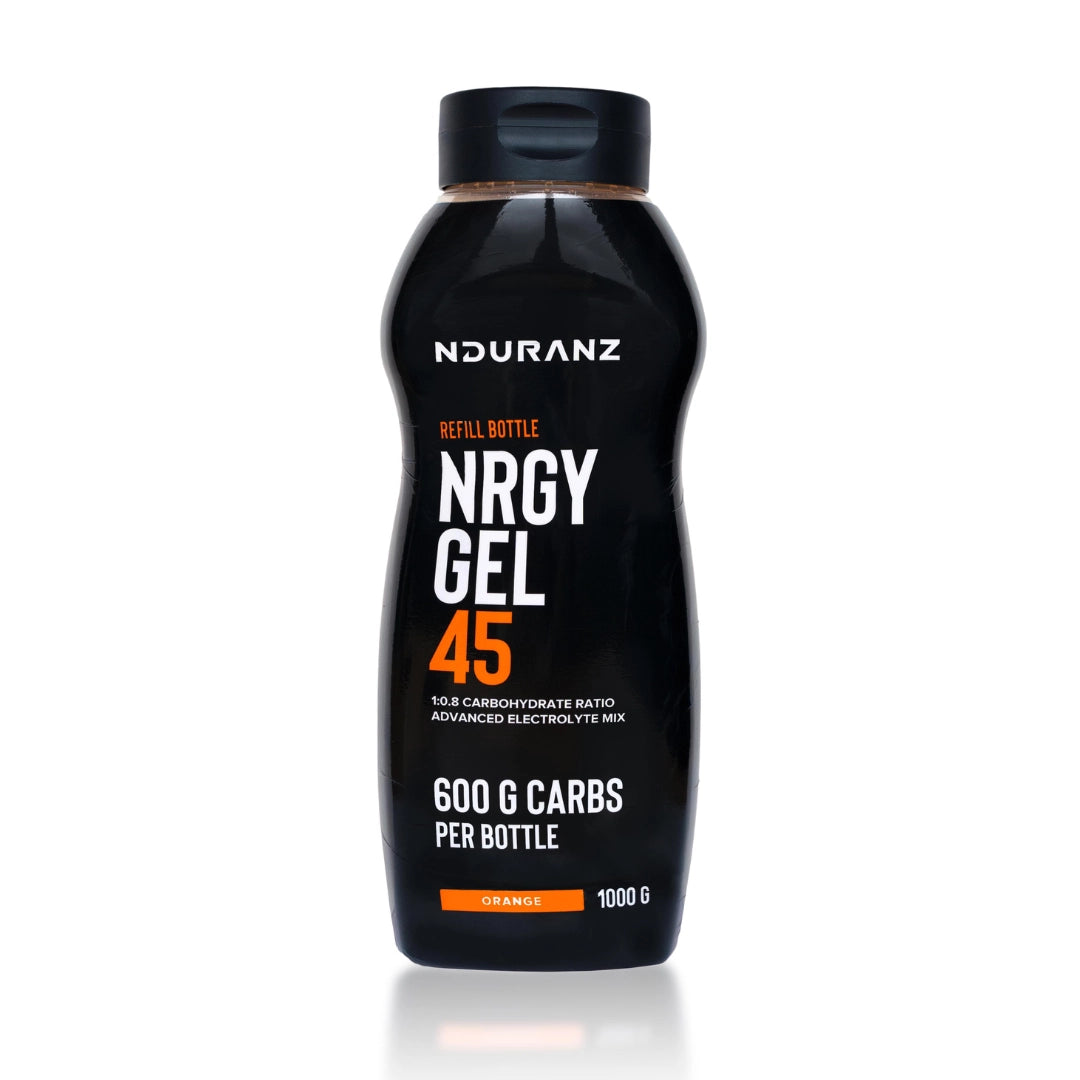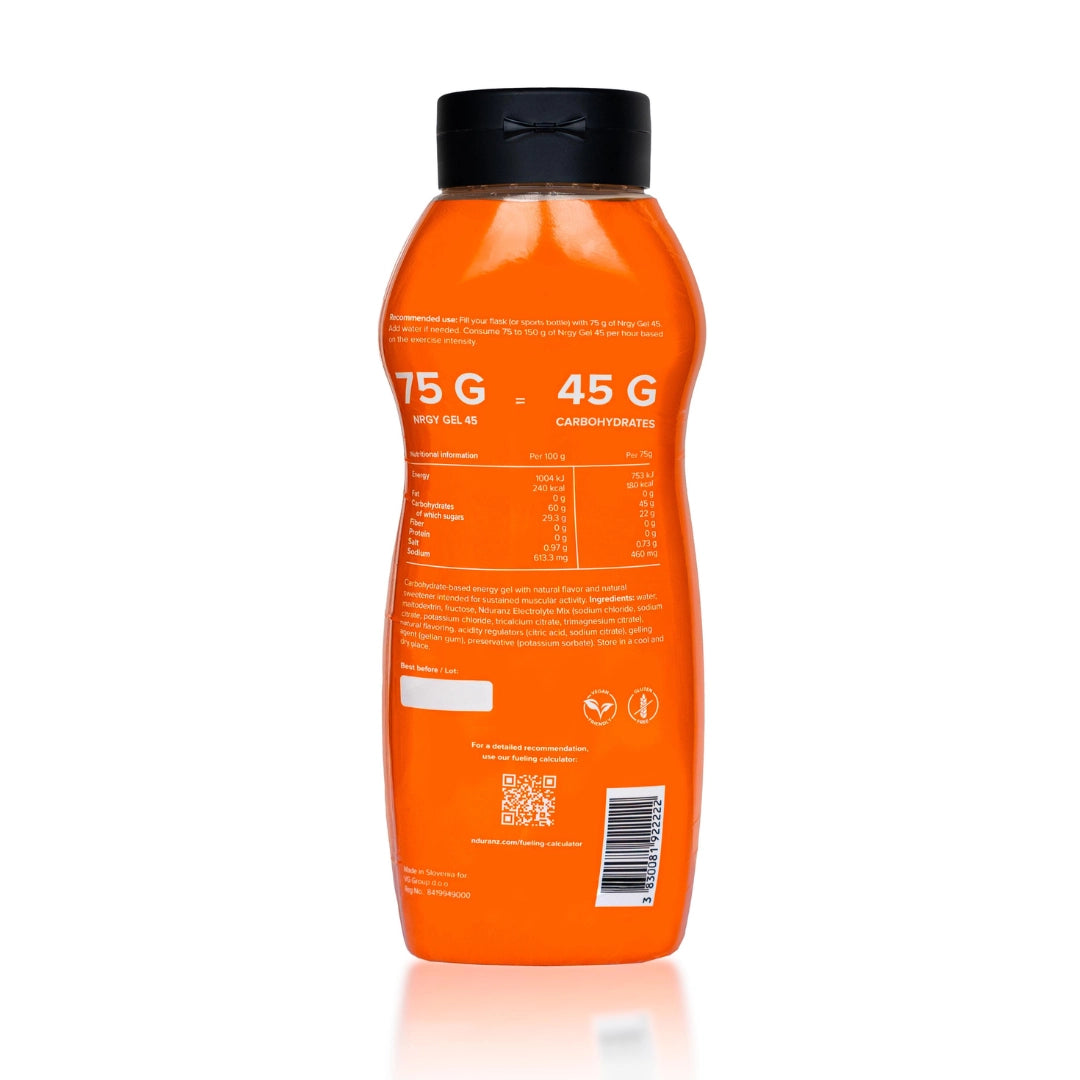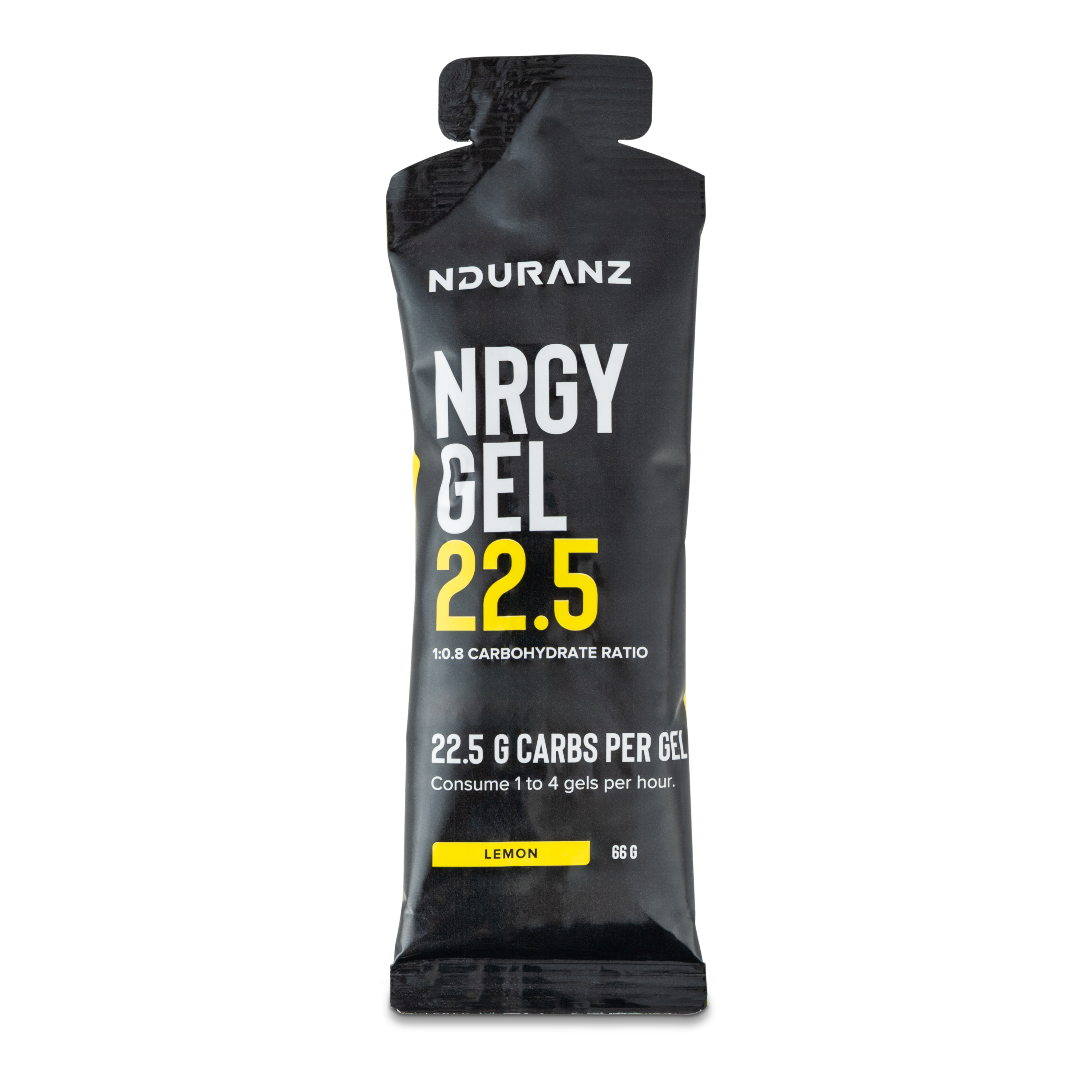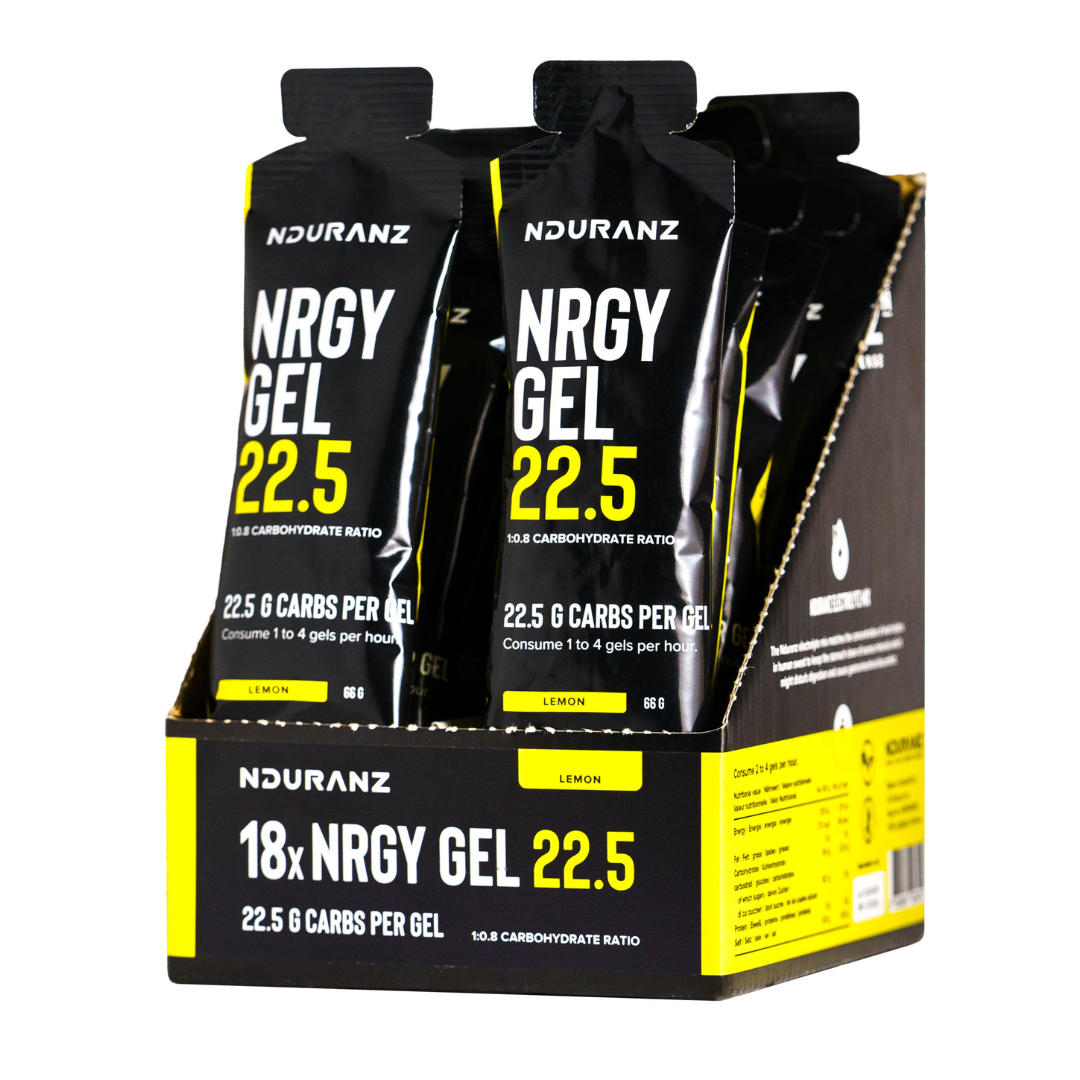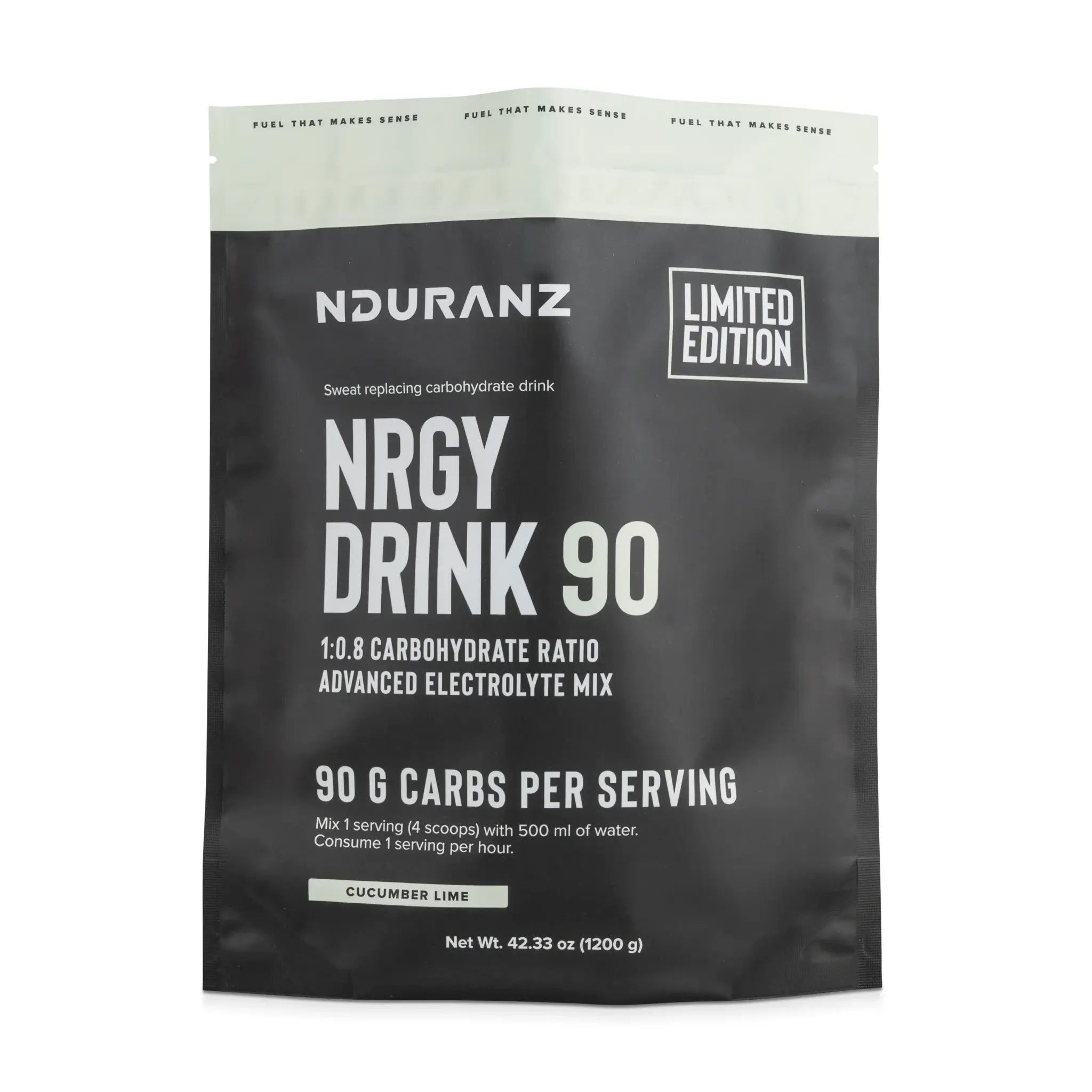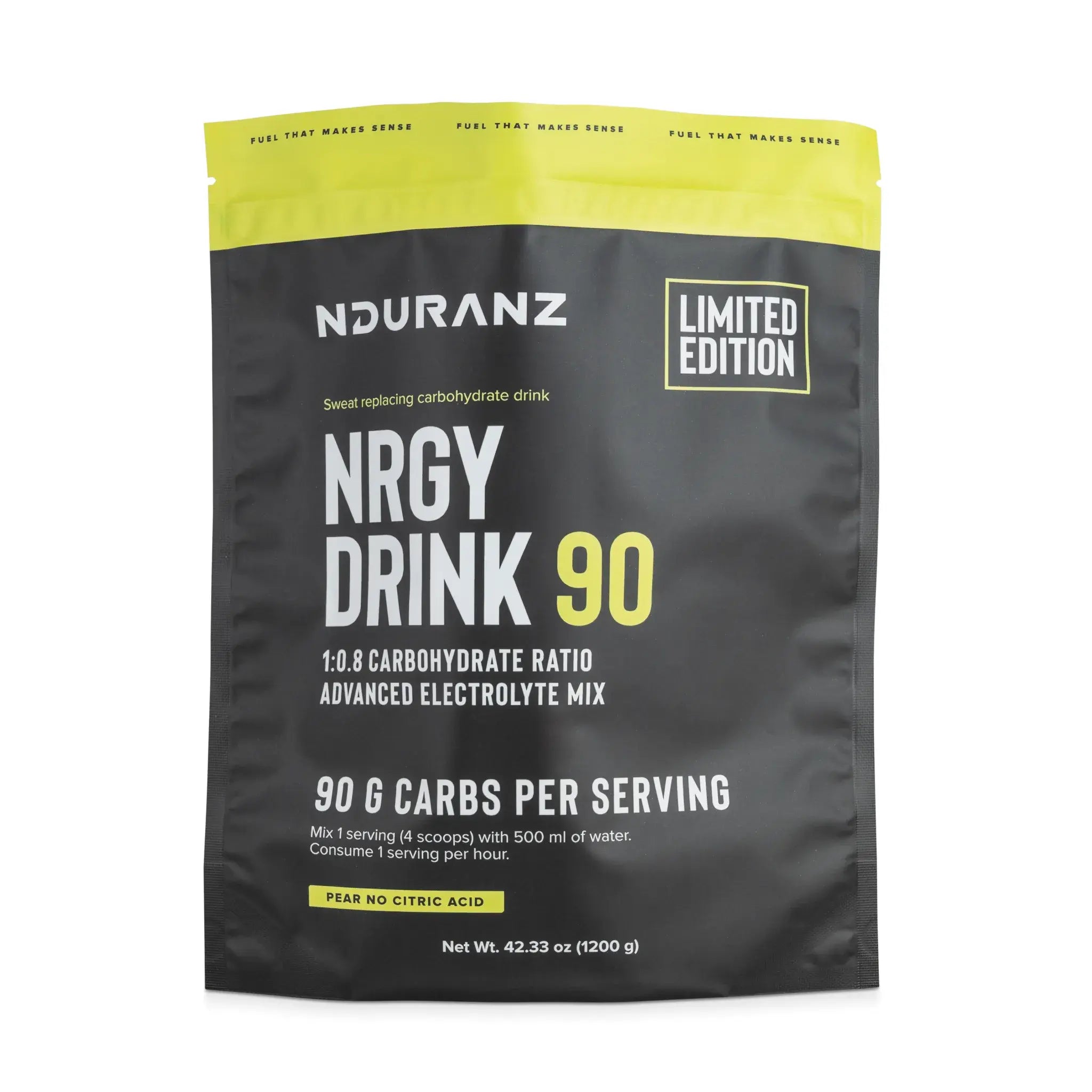Fueling Calculator
Use our Fueling Calculator to calculate your energy requirements.
Fueling Guide
Discover how to fuel your body for peak performance. Learn when, what, and how much to eat during endurance efforts to maximize energy and recovery.
Learn MoreGut Training
Before a period of high carbohydrate intake, it is essential to get your gut used to it. In the weeks or even months before your main goal, start training your gut.
Fueling Guide
Discover how to fuel your body for peak performance. Learn when, what, and how much to eat during endurance efforts to maximize energy and recovery.
Learn MoreProper Hydration
Learn to regulate your fluid intake based on the weather conditions and don't forget to intake essential electrolytes found in the Nduranz Electrolyte Mix.
Why do I need to fuel?
During endurance exercise, the body primarily relies on glycogen (stored carbohydrates) for energy. As exercise continues, glycogen levels gradually deplete. Fueling with carbohydrates allows you to replenish glycogen stores so you can exercise longer and harder.
How does the fueling calculator work?
The fueling calculator provides personalized carbohydrate intake recommendations based on science-backed principles. It primarily considers these three factors:
- Duration: The longer you exercise, the more your glycogen stores will become depleted. The calculator estimates how much glycogen you’ll burn based on the duration of your session.
- Intensity: Higher-intensity exercise depletes glycogen faster. The calculator adjusts recommendations depending on how hard you plan to exercise.
- Absorption Limits: Your body can only absorb so much fuel at a time. Research shows that people can absorb roughly 60 g of glucose plus 30 g of fructose per hour, for a maximum of around 90 g of carbohydrates per hour.
How does bodyweight affect fueling requirements?
Fueling during endurance exercise primarily is limited by how many carbohydrates the gut can absorb per hour. However, bodyweight still plays a role.
Heavier or larger athletes typically need more energy to produce the same power output or speed because they have more mass to move. Even though their gut absorption limits may be similar, bigger athletes may need more fuel than smaller athletes to meet their energy demands.
There is also some evidence showing that larger athletes oxidize more carbohydrates per hour than smaller athletes.
Does this fueling calculator work for all endurance sports?
Yes, the fueling calculator provides personalized guidelines for all endurance sports including cycling, running, ultra-trail, and triathlon. However, adjustments may be needed depending on the sport. For example, triathletes cannot consume fuel during the swim portion, so intake should be planned for before or after the swim.
Why don’t I need to fuel shorter exercise sessions?
Fueling is typically not needed for sessions lasting less than 90 minutes because your body’s stored glycogen provides enough energy. However, there are some exceptions where fueling for shorter, easier sessions is beneficial — such as if you have a very hard session the next day or it’s a recovery session. Learn more here.
Why does the fueling calculator recommend fewer carbohydrates in the first hour?
When you begin exercising (especially if you've eaten a carb-rich meal beforehand), your muscle glycogen and liver glycogen stores are still relatively full. These are your body's preferred fuel source at the beginning of endurance activities, especially at moderate to high intensities.
So during the first hour, your body can mostly rely on internal fuel, and you don’t need to ingest a large amount of fuel immediately. As the session goes on and glycogen stores start to decline, your body begins to rely more on ingested carbohydrates to maintain blood glucose levels and energy output. That’s why the fueling calculator recommends increasing amounts after the first hour.
Further, fueling with smaller amounts of carbohydrates in the first hour helps your gut adapt. If you fuel with large amounts immediately, you might experience some GI distress such as bloating or nausea.
Why does the fueling calculator only recommend up to 90 grams per hour?
While it’s possible that some athletes can absorb more than 90 grams of carbohydrates per hour, there is currently no evidence showing that fueling with amounts higher than this improves performance. Because of this, the fueling calculator only recommends up to 90 grams per hour, even during long, intense sessions.

